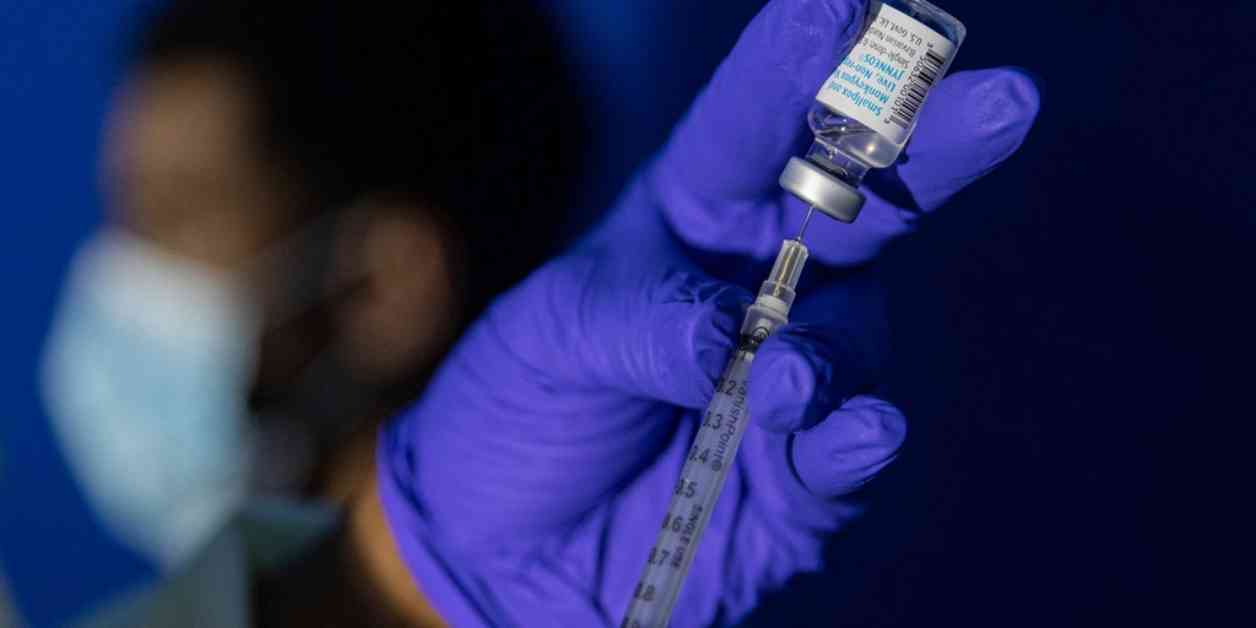The Africa Centers for Disease Control and Prevention declared the increasing spread of mpox a health emergency, warning the virus might spread across international borders. A new form of mpox that can kill up to 10% of people and may spread more easily was detected in Congo. The new form is harder to spot. The World Health Organization director-general said officials were dealing with several mpox outbreaks in various countries with “different modes of transmission and different levels of risk.”
The Africa Centers for Disease Control and Prevention declared this week that the increasing spread of mpox across the continent is a health emergency, warning the virus might ultimately spill across international borders. On Wednesday, the World Health Organization is convening its own expert meeting to consider making a similar emergency declaration over mpox. The U.N. health agency said there have been more than 14,000 cases and 524 deaths this year, which already exceed last year’s figures.
So far, more than 96% of all cases and deaths are in a single country — Congo. Scientists are concerned by the spread of a new version of the disease there that might be more easily transmitted among people.
Current Situation of Mpox in Africa
The number of cases has jumped dramatically. Last week, the Africa CDC reported that mpox has now been detected in at least 13 African countries. Compared with the same period last year, the agency said cases are up 160% and deaths have increased by 19%.
Earlier this year, scientists reported the emergence of a new form of mpox in a Congolese mining town that can kill up to 10% of people and may spread more easily. Unlike in previous mpox outbreaks, where lesions were mostly seen on the chest, hands, and feet, the new form of mpox causes milder symptoms and lesions on the genitals. That makes it harder to spot, meaning people might also sicken others without knowing they’re infected.
WHO said mpox was recently identified for the first time in four East African countries: Burundi, Kenya, Rwanda, and Uganda. All of those outbreaks were linked to the epidemic in Congo.
In the Ivory Coast and South Africa, health authorities have reported outbreaks of a different and less dangerous version of mpox that spread worldwide in 2022.
Implications of Mpox Emergency Declaration
Africa CDC Director General Dr. Jean Kaseya said the agency’s declaration of a public health emergency was meant “to mobilize our institutions, our collective will, and our resources to act swiftly and decisively.” He appealed to Africa’s international partners for help, saying that the escalating caseload in Africa had largely been ignored.
“It’s clear that current control strategies aren’t working and there is a clear need for more resources,” said Michael Marks, a professor of medicine at the London School of Hygiene and Tropical Medicine. “If a (global emergency declaration) is the mechanism to unlock these things, then it is warranted,” he said.
Greg Ramm, Save the Children’s Congo director, said the organization was particularly worried about the spread of mpox in the crowded camps for refugees in the east, noting there were 345,000 children “crammed into tents in unsanitary conditions.” He said the country’s health system was already “collapsing” under the strain of malnutrition, measles, and cholera.
Dr. Boghuma Titanji, an infectious diseases expert at Emory University, said it was unclear why children were so disproportionately hit by mpox in Congo. She said it might be because kids are more susceptible to the virus or that social factors, like overcrowding and exposure to parents who caught the disease, might explain it.
Preventive Measures and Strategies Against Mpox
The 2022 outbreak of mpox in dozens of countries was largely shut down with the use of vaccines and treatments in rich countries, in addition to convincing people to avoid risky behavior. But barely any vaccines or treatments have been available in Africa.
Marks, of the London School of Hygiene and Tropical Medicine, said that immunization would likely help — including inoculating people against smallpox, a related virus.
“We need a large supply of vaccine so that we can vaccinate populations most at risk,” he said, adding that would mean sex workers, children, and adults living in outbreak regions.
Congo has said it’s in talks with donors about possible vaccine donations and has gotten some financial aid from Britain and the U.S.
WHO said it had released $1.45 million from its emergency fund to support the response to mpox in Africa.
In conclusion, the situation with mpox in Africa is dire, with the virus spreading rapidly and causing significant harm. It is crucial for international organizations, governments, and health authorities to work together to contain the outbreak and prevent further loss of life. With the right preventive measures and strategies in place, it is possible to curb the spread of mpox and protect the health and well-being of communities across the continent.

















